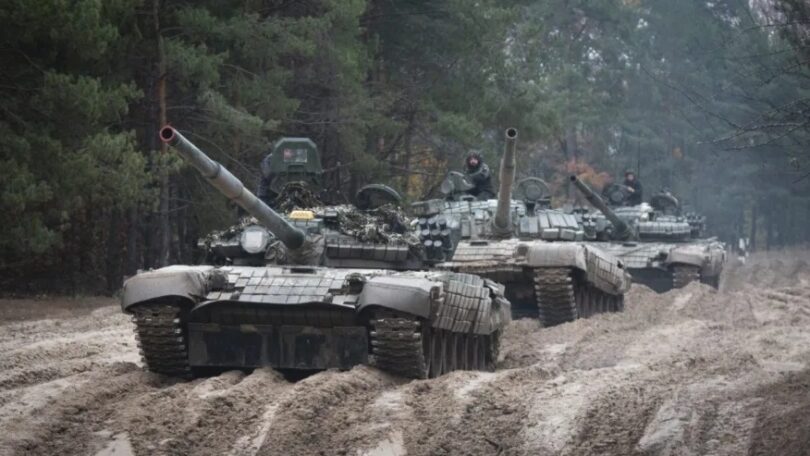Jared Gans
WASHINGTON: Former NATO Supreme Allied Commander James Stavridis said the West sending tanks to Ukraine to provide additional aid in its war with Russia “creates real problems” for Russian President Vladimir Putin.
Putin is trying to scare the West with the Kremlin’s comments that NATO countries’ move to send tanks to Ukraine increases their “direct involvement” in the conflict, Stavridis told talk show host John Catsimatidis on his WABC 770 morning show “The Cats Roundtable.”
He rejected the idea that the West has escalated the situation but added that the Abrams tanks coming from the United States, Leopard 2 tanks coming from Germany and other countries, and Challenger tanks from the United Kingdom will play a key role in supporting Ukraine’s defenses.
“When you put these three types of tanks together and you bring them in real numbers into Ukraine, and I would estimate there will be at least 100, maybe as many as 200, by midspring, call it the end of March, that creates real problems for Putin,” he said.
Following weeks of pressure from Ukraine and other Western allies, the U.S. and Germany both agreed to send tanks to support Ukrainian forces. Putin and the Kremlin have consistently denounced the West as it has continued and stepped up its support for Ukraine throughout the war.
Stavridis, who is a retired admiral, said Russian forces are stretched out on a long front of 400 to 600 miles, running from Russia down to the Black Sea and the Crimean Peninsula.
“With these tanks, the Ukrainians can mask that armor and use it to punch through the Russian line, separate them, peel them apart, break the logistics chain,” he said.
He also noted that transfers of the tanks mark a “pivotal” moment in the land war and will be a “bad day” for Putin with the conflict itself and in seeing the West’s unity.
“It’s a strong political and diplomatic signal, and, as I said earlier, it’s a very important military step for the alliance,” Stavridis said.
Courtesy: thehill







